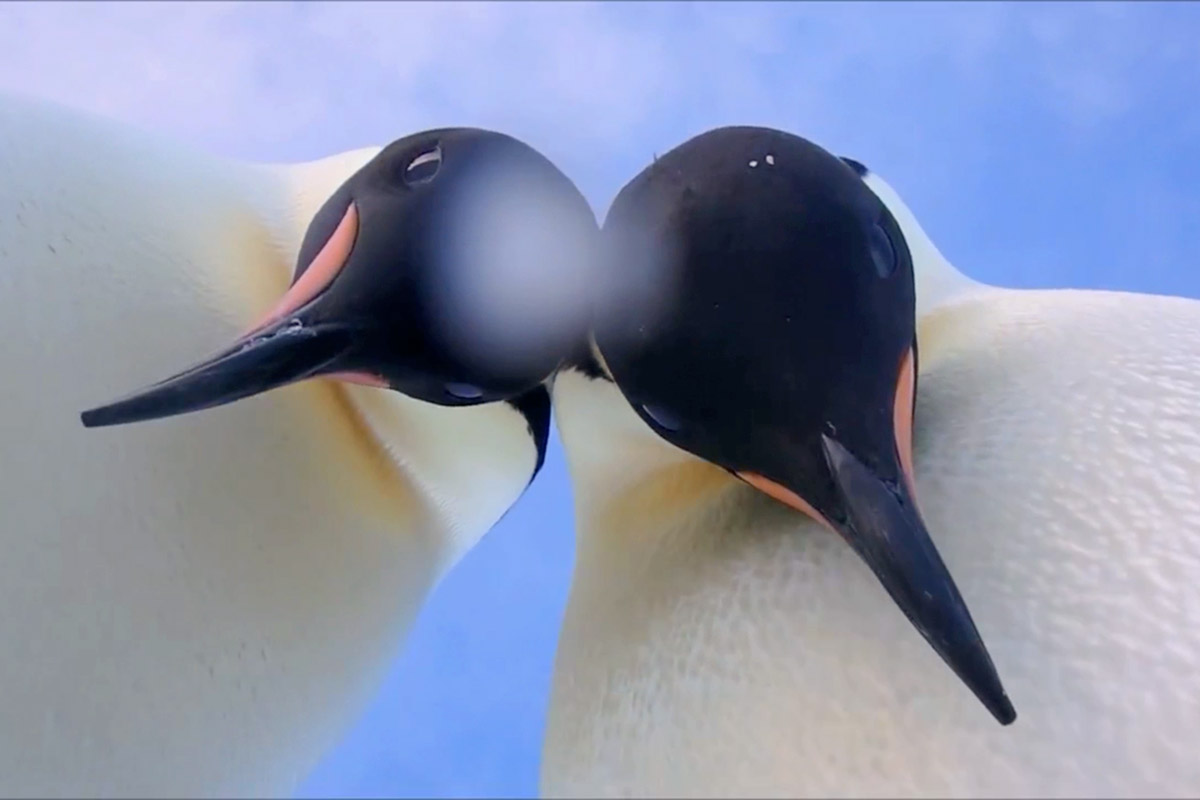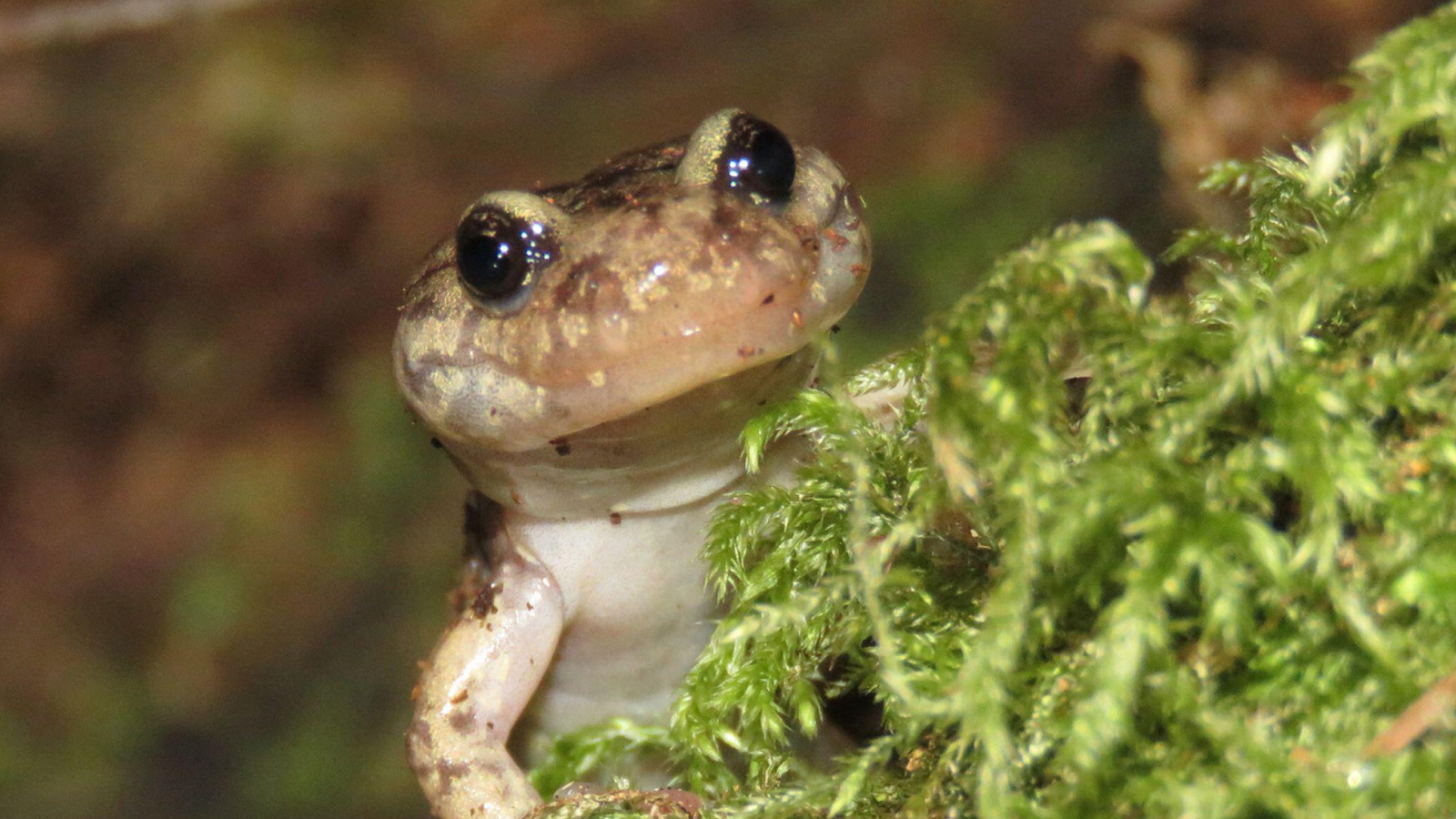The best-dressed animals may also be the vainest — at least if their propensity for selfies is any indication.
A new video shows two emperor penguins in Antarctica interacting with a camera left on the ice, and the result is even cuter than you'd expect.
Explorer Eddie Gault left the camera behind at the Auster emperor penguin rookery, near Australia's Mawson research station in East Antarctica.

A pair of the fluffy penguins soon made the most of the camera to preen and pose, producing some of the most adorable footage on the continent. The camera first focuses on the feet of the two pudgy penguins as they waddle toward it — but the birds soon nudge the camera upward to focus on their faces. (And yes, even bird beaks look larger in selfies.) The penguins then make several vocalizations, as if to say, "Look what I found!"
Emperor penguins (Aptenodytes forsteri) are the biggest of all penguin species, weighing up to 88 lbs. (40 kilograms) and standing up to 45 inches (1.1 meters) tall, according to National Geographic. These tuxedo-clad birds breed and feed on sea ice in at least 46 different colonies on Antarctica.
A 2009 satellite-image-based survey found 595,000 individuals on the continent. But because climate change is expected to transform the landscape and dramatically reduce the extent of their sea ice habitat, the species is listed as near threatened, according to the International Union for Conservation of Nature (IUCN).
Originally published on Live Science.
Sign up for the Live Science daily newsletter now
Get the world’s most fascinating discoveries delivered straight to your inbox.

Tia is the managing editor and was previously a senior writer for Live Science. Her work has appeared in Scientific American, Wired.com and other outlets. She holds a master's degree in bioengineering from the University of Washington, a graduate certificate in science writing from UC Santa Cruz and a bachelor's degree in mechanical engineering from the University of Texas at Austin. Tia was part of a team at the Milwaukee Journal Sentinel that published the Empty Cradles series on preterm births, which won multiple awards, including the 2012 Casey Medal for Meritorious Journalism.










